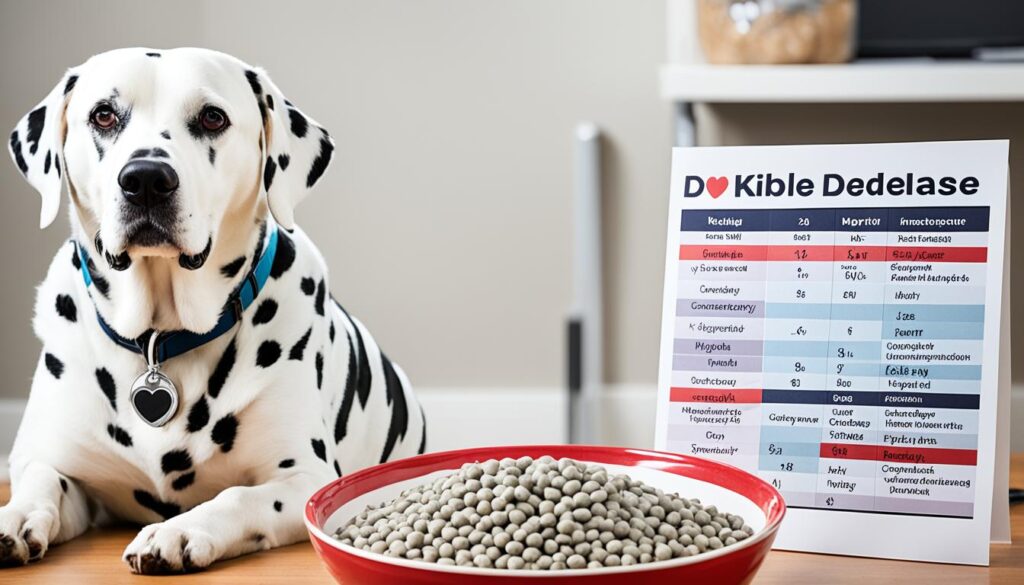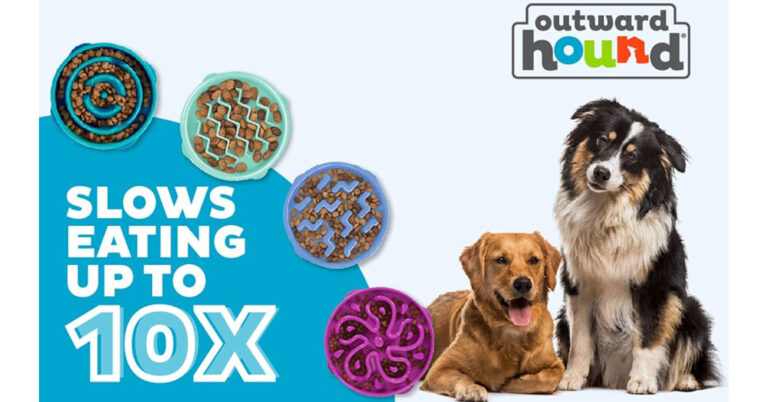Heart-Healthy Diet Plans for Dogs with Cardiovascular Issues

Did you know 1/3 of dogs over 10 years old have heart disease? That’s how important heart healthy dog food and nutrition is. As a pet owner I’ve found that feeding our pets right is key to managing heart disease.
Heart problems in dogs can be hard to detect but the right diet helps a lot. A low fat diet is often necessary for dogs with heart issues. It’s not just about cutting out treats. It’s about creating a balanced diet that supports their heart health.
I found out small dogs are more prone to heart disease than big dogs. I was surprised and realized how important it is to customize our diets for each dog.
In this article we’ll look at how to make heart healthy diets for dogs with heart disease. We’ll cover the best foods, key nutrients and tips to keep our dogs hearts healthy for life.
Key Takeaways
- One-third of dogs over 10 have cardiovascular disease
- Small dogs are more likely to develop heart issues
- Low-sodium diets are vital for dogs with heart problems
- High-quality protein helps prevent muscle loss in heart disease
- Omega-3 fatty acids may benefit dogs with heart conditions
- Antioxidants are important for dogs with congestive heart failure
- Tailored nutrition is key in managing canine heart disease
Understanding Canine Heart Disease
As a dog owner, I know how crucial it is to keep our furry friends healthy. Canine heart disease is a serious issue that affects many dogs. Let’s explore the various heart problems dogs can face and what increases their risk.
Common Types of Heart Disease in Dogs
Dogs can face many heart conditions. The most common is mitral valve disease, which accounts for 75% of cases. Another common issue is dilated cardiomyopathy. Unlike humans, dogs rarely get clogged arteries. Small breeds often have valve problems, while larger dogs are more likely to have enlarged hearts.
Differences Between Human and Canine Heart Disease
Dog heart health is different from ours in significant ways. While we worry about heart attacks from blocked arteries, dogs face other challenges. Their hearts can enlarge or have faulty valves. Some pups are even born with heart defects, which is less common in people.

Risk Factors for Canine Heart Disease
Several factors can increase a dog’s risk of heart problems. Age is a big factor – older dogs are more likely to develop heart issues. Breed also plays a role, with some being more susceptible. Being overweight puts extra strain on a dog’s heart. Genetics and high blood pressure can also lead to heart disease in dogs, similar to in humans.
| Risk Factor | Impact on Heart Disease |
|---|---|
| Age | Older dogs at higher risk |
| Breed | Some breeds more prone |
| Obesity | Increases strain on heart |
| Genetics | Inherited predisposition |
| Hypertension | Can lead to heart problems |
Recognizing Signs of Heart Disease in Dogs

As a dog owner you need to be aware of dog heart disease symptoms. These can catch us out so being aware is key. Let’s look at the common signs that might mean your furry friend has heart problems.
Persistent coughing is the first sign. If your dog is coughing a lot, especially at night or after exercise, pay attention. Difficulty breathing or rapid breathing can also mean heart problems. You might see your dog panting more than usual even when they are resting.
Behaviour changes are another clue. A normally active dog becoming lethargic or showing less interest in exercise could mean heart trouble. Weight loss and loss of appetite often go together with heart disease in dogs. If your dog is losing interest in food or losing weight unexpectedly, investigate.
| Common Symptoms | Less Common Signs |
|---|---|
| Persistent coughing | Blue-tinged gums |
| Difficulty breathing | Fainting episodes |
| Lethargy | Abdominal swelling |
| Weight loss | Collapse |
Early is key. Regular check ups can catch heart issues in dogs before they get worse. If you see symptoms don’t wait. A quick vet visit can make a big difference to your dog’s heart health.
The Importance of Nutrition in Managing Canine Heart Disease
Dog nutrition is key to managing heart disease in dogs. A heart healthy diet can improve a dog’s life. It can even reverse some heart conditions.
How Diet Affects Heart Health in Dogs
The right diet is critical for dogs with heart problems. These dogs often struggle to stay at a healthy weight. Vets score them on a 9 point scale and aim for 4-5.
Being overweight can make breathing harder for them. So, keeping them at a healthy weight is essential.

Key Nutritional Considerations for Dogs with Heart Issues
When creating a diet for dogs with heart issues you need to consider:
- Sodium: Less is better for fluid build up
- Protein: High quality protein is good for muscles but amounts vary
- Potassium: The right amount is key for heart function
- Omega-3’s: Reduce inflammation and appetite
| Nutrient | Recommendation | Benefit |
|---|---|---|
| Sodium | Reduces fluid retention | |
| Protein | Moderate to high | Maintains muscle mass |
| Omega-3 | EPA and DHA rich | Reduces inflammation |
| Antioxidants | Vitamins C and E | Protects heart cells |
Treats should be no more than 10% of a dog’s diet. That way they get all their nutrients from their main food. By focusing on these nutritional factors I can help dogs with heart disease.
Heart-Healthy Dog Food: Essential Components
Creating a heart healthy diet for dogs means paying attention to the nutrients. Let’s look at the pieces of a balanced diet for our fur babies.
Low-Sodium Options for Canine Cardiovascular Health
Keep sodium in dog food under 100mg a day. This helps with blood pressure and eases the heart’s workload. Find low sodium dog food or make meals with fresh, unsalted ingredients.
High-Quality Protein Sources for Muscle Maintenance
A healthy heart diet should be 25-30% high quality protein. Lean meats like chicken and fish are good choices. These help keep muscles strong which is important for dogs with heart issues. I like to use fresh, unprocessed meats to avoid extra sodium.
Antioxidant-Rich Ingredients for Cellular Protection
Antioxidants in dog food fight heart disease. I add colorful fruits and veggies to my dog’s meals. Blueberries, spinach and sweet potatoes are good for heart health because they are full of antioxidants.
| Component | Recommended Amount | Benefits |
|---|---|---|
| Sodium | <100 mg daily | Manages blood pressure |
| Protein | 25-30% of diet | Maintains muscle mass |
| Omega-3 Fatty Acids | Based on vet recommendation | Reduces inflammation, supports heart rhythm |

I make sure my dog eats a heart healthy diet by focusing on these. Always talk to a vet to make sure the diet is good for your dog especially if they have heart issues.
The Role of Omega-3 Fatty Acids in Canine Heart Health

Omega-3 fatty acids are key for keeping our dogs’ hearts healthy. They help keep heart muscle cells stable in dogs with heart problems. Adding omega-3 for dogs to their diet is very beneficial.
Fish oil is a great source of omega-3’s for dogs. It’s good for heart health, makes their coat shiny, reduces skin problems and joint pain. Many vets recommend these for dogs with heart issues. Omega-3’s in fish oil can reduce abnormal heart rhythms and improve heart function in dogs with heart failure.
When picking fish oil supplements for dogs, look at the type and quality. Here’s a quick guide to common types:
| Type | Purity | Absorption |
|---|---|---|
| Natural Triglyceride Oil | High | Excellent |
| Ethyl Ester Oil | Very High | Good |
| Synthetic Triglyceride Oil | High | Very Good |
Talk to a vet to find out what dose of omega-3 is right for your dog. It’s based on their size, weight and health. Remember omega-3s are great but also keep in balance with omega-6 fatty acids for your dog’s health.
Tailoring Diet Plans for Different Stages of Heart Disease
Customizing a dog’s diet is key when dealing with heart disease. As the condition gets worse so should the diet. Let’s look at how to adjust your dog’s meals for their heart health stage.
Early-Stage Diet Recommendations
For dogs with early heart disease I recommend mild diet changes. Reduce sodium and manage their weight. I recommend high quality foods that meet AAFCO standards like Royal Canin or Hill’s Science Diet. These brands are research based and quality focused so they have balanced nutrition for dogs with heart conditions.

Nutritional Strategies for Advanced Heart Disease
For more severe heart disease, a stricter diet plan is needed. This includes:
- Significantly lower sodium levels
- Increased omega-3 fatty acids (fish oil can improve food intake in dogs with congestive heart failure)
- Adequate protein to maintain muscle mass
- Supplements like taurine, which may help with certain types of heart disease
I often suggest therapeutic diets made for heart health. These diets meet the complex nutritional needs of dogs with severe heart disease. They help manage symptoms and support overall health.
Homemade vs. Commercial Heart-Healthy Dog Food Options
I’ve looked into heart-healthy dog food options, and both homemade and commercial foods have good points. With homemade dog food recipes, you need to plan well. Many homemade recipes can lack nutrients, which might harm our pets’ health.
Commercial cardiac dog food is made to fit the needs of dogs with heart issues. It has low sodium and high-quality protein to help muscles. These foods are pricier but offer ease and reassurance.
| Aspect | Homemade Dog Food | Commercial Cardiac Dog Food |
|---|---|---|
| Nutrient Balance | Requires careful planning | Formulated for specific needs |
| Cost | Can be cost-effective | Generally more expensive |
| Convenience | Time-consuming to prepare | Ready-to-serve |
| Customization | Highly customizable | Limited options |
| Quality Control | Varies based on ingredients | Consistent quality |
Choosing the right food for your dog is crucial. Always talk to a vet. They can guide you on the best diet for your dog’s heart health.
Supplements and Additives for Dogs with Cardiovascular Issues
Dog food supplements can really help dogs with heart problems. Even with vet-recommended dog food, some dogs need extra nutrients. Let’s look at some good supplements and the risks they might have.
Beneficial Supplements for Heart Health
Omega-3 fatty acids are great for a dog’s heart. They help reduce inflammation and keep the heart rhythm steady. Taurine, L-carnitine, and Coenzyme Q10 are also good choices. If your dog is on heart medicine, they might need potassium supplements too. Always talk to your vet about the right amount based on blood tests.
Potential Risks and Interactions
Supplements can be good but they can also be bad. They may not mix well with heart meds or make things worse. Always talk to a vet before giving your dog any supplements. Too much protein is bad for their kidneys so watch out for that. I only use tested and certified supplements from trusted sources to keep my dog safe and healthy.






